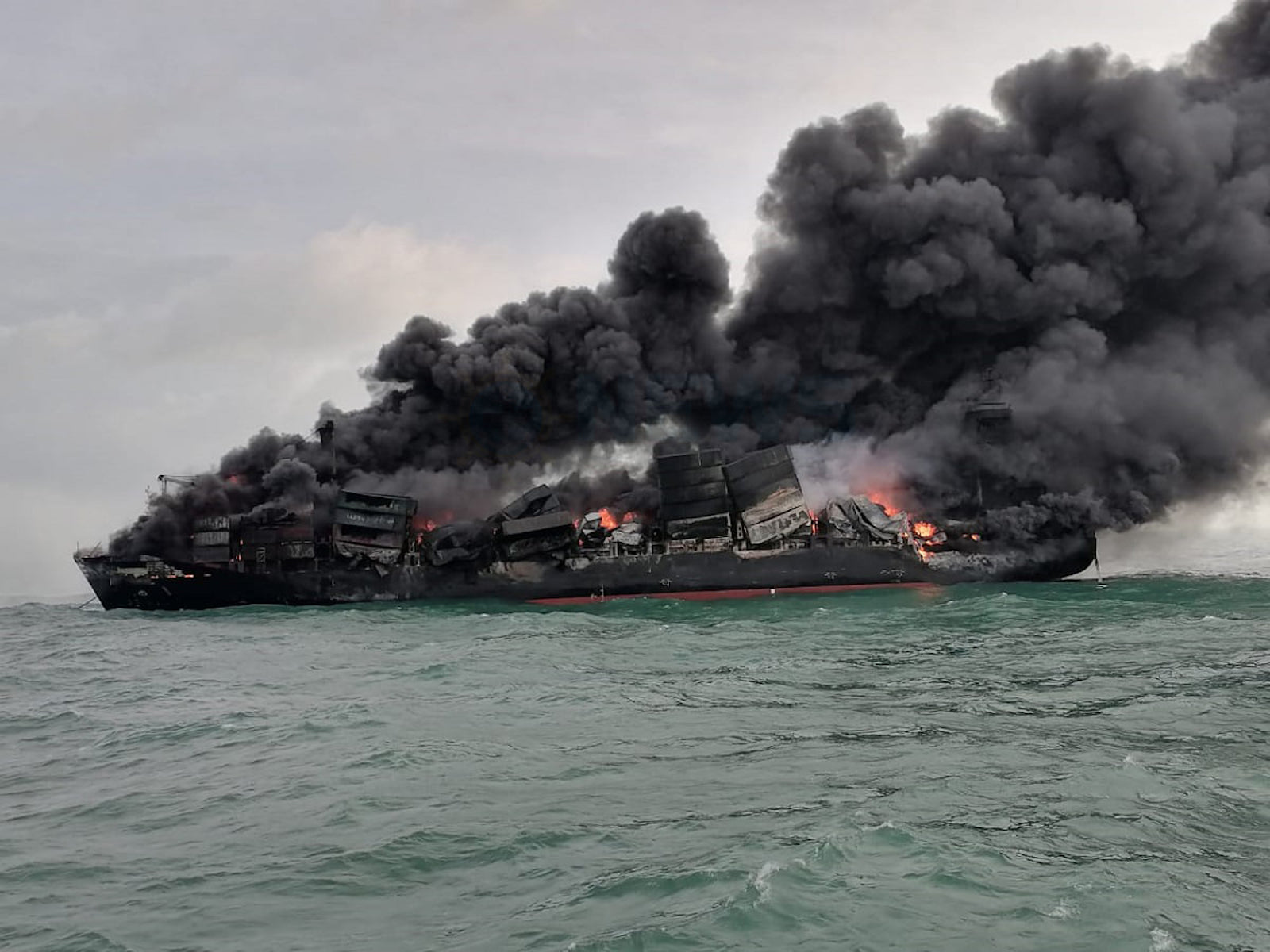-By LeN Political Correspondent

(Lanka-e-News -27.July.2025, 11.00 PM) A series of troubling questions have arisen regarding the actions taken—or more accurately, the lack thereof—by former Justice Minister Dr Wijeyadasa Rajapakshe and former MP Ajith Mannapperuma, in relation to a multi-million dollar bribery scandal linked to the MV X-Press Pearl maritime disaster.
According to claims made in Parliament by Dr Rajapakshe himself, a staggering bribe of USD 250 million (approximately LKR 75 billion) was allegedly offered to derail legal efforts to secure compensation for the catastrophic environmental damage caused by the sinking of the X-Press Pearl vessel off the coast of Sri Lanka in 2021.
The vessel’s destruction resulted in one of the worst marine environmental disasters in the island’s history—polluting the ocean, coastline, and atmosphere with toxic chemicals and microplastics. Initial legal projections indicated Sri Lanka could claim up to USD 7 billion in damages. Yet, this pursuit appears to have been quietly undermined.
In an explosive revelation made on the floor of Parliament, Dr Rajapakshe stated he was in possession of specific details relating to the bribe, including cheque numbers and bank account information involved in the transaction. These disclosures have led to intensified public scrutiny.
Further intrigue surrounds Mr Ajith Mannapperuma, who at the time served not only as a Deputy Minister but also chaired the parliamentary Committee on Environment. It has now emerged that Mannapperuma received early intelligence about the bribe via WhatsApp, although what action he took—if any—remains murky.
The central question now consuming political and civil society circles is straightforward: What steps did these two former lawmakers take upon receiving such explosive information?
While it is reported that a formal complaint may have been submitted to the Criminal Investigation Department (CID), there is little public evidence of any proactive or preventative measures taken by either Rajapakshe or Mannapperuma to escalate the matter beyond perfunctory procedure.
Critics argue that the silence which followed these revelations speaks volumes. Neither individual appears to have meaningfully pursued the matter beyond statements made in Parliament or internal messaging. There has been no formal follow-up in the public domain, nor has any credible legal action or inquiry been initiated to identify the recipients or facilitators of the bribe.
Legal experts and transparency advocates are now demanding answers. “If two senior parliamentarians, one a former Minister of Justice and the other the chair of an environmental oversight body, knew about a USD 250 million bribe and failed to act effectively, it constitutes a betrayal of the public trust of the highest order,” said a senior legal analyst in Colombo, speaking on condition of anonymity.
Calls are mounting for the Anti-Corruption Commission and the newly formed parliamentary ethics watchdog to launch a full-scale investigation into the actions—or omissions—of both Rajapakshe and Mannapperuma. The incident has sparked broader debate about institutional integrity and accountability within Sri Lanka’s political elite.
Environmental campaigners, meanwhile, lament the missed opportunity to seek justice for one of the most grievous ecological disasters to hit the region in decades. With global precedent for such cases increasingly leaning toward the “polluter pays” principle, Sri Lanka’s case could have set a new international benchmark—had it not been allegedly derailed by corruption.
As pressure mounts, both Rajapakshe and Mannapperuma remain silent on any further measures taken beyond their initial disclosures. The public—and history—may not be as forgiving.
---------------------------
by (2025-07-27 19:49:49)
Leave a Reply